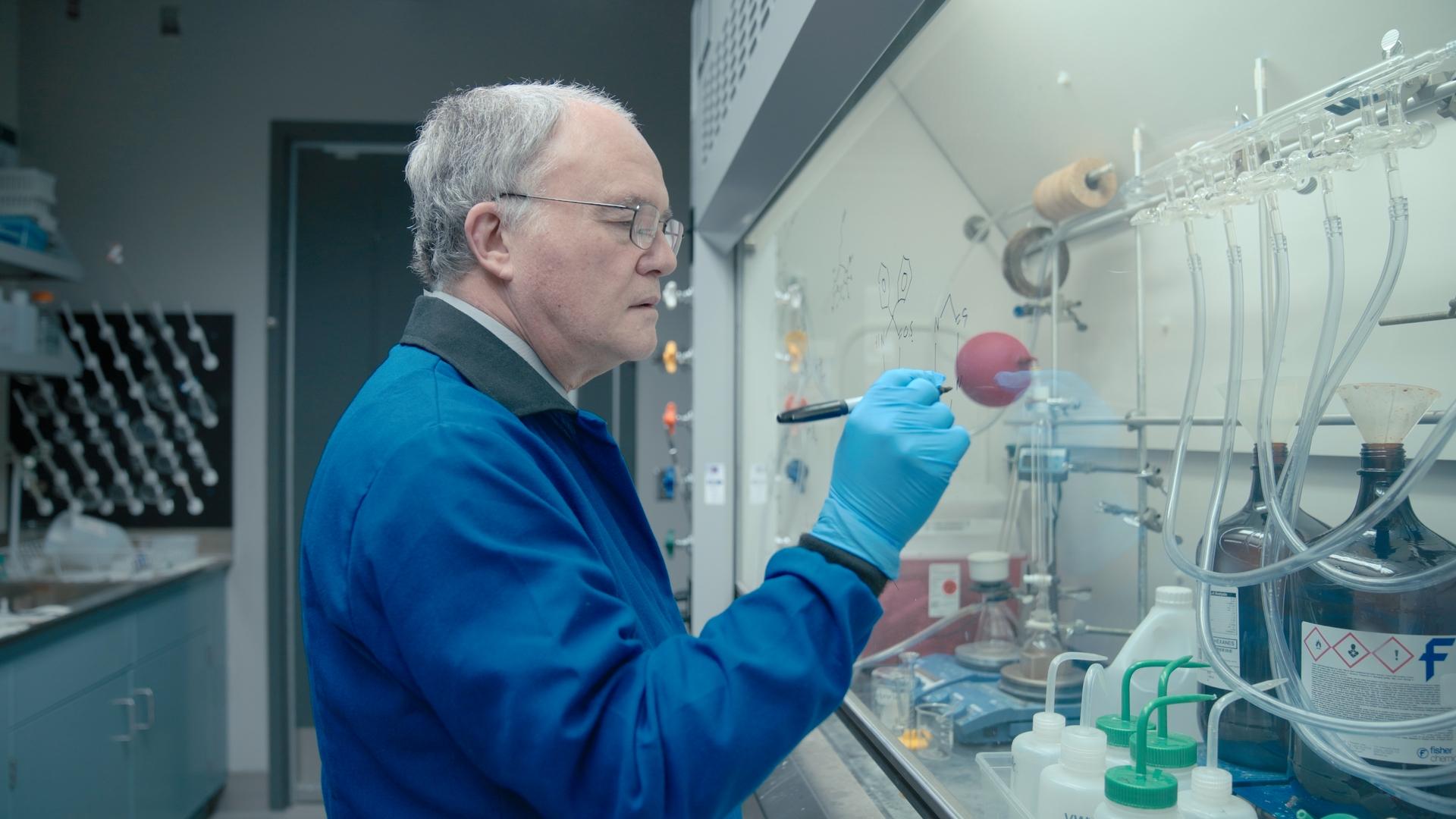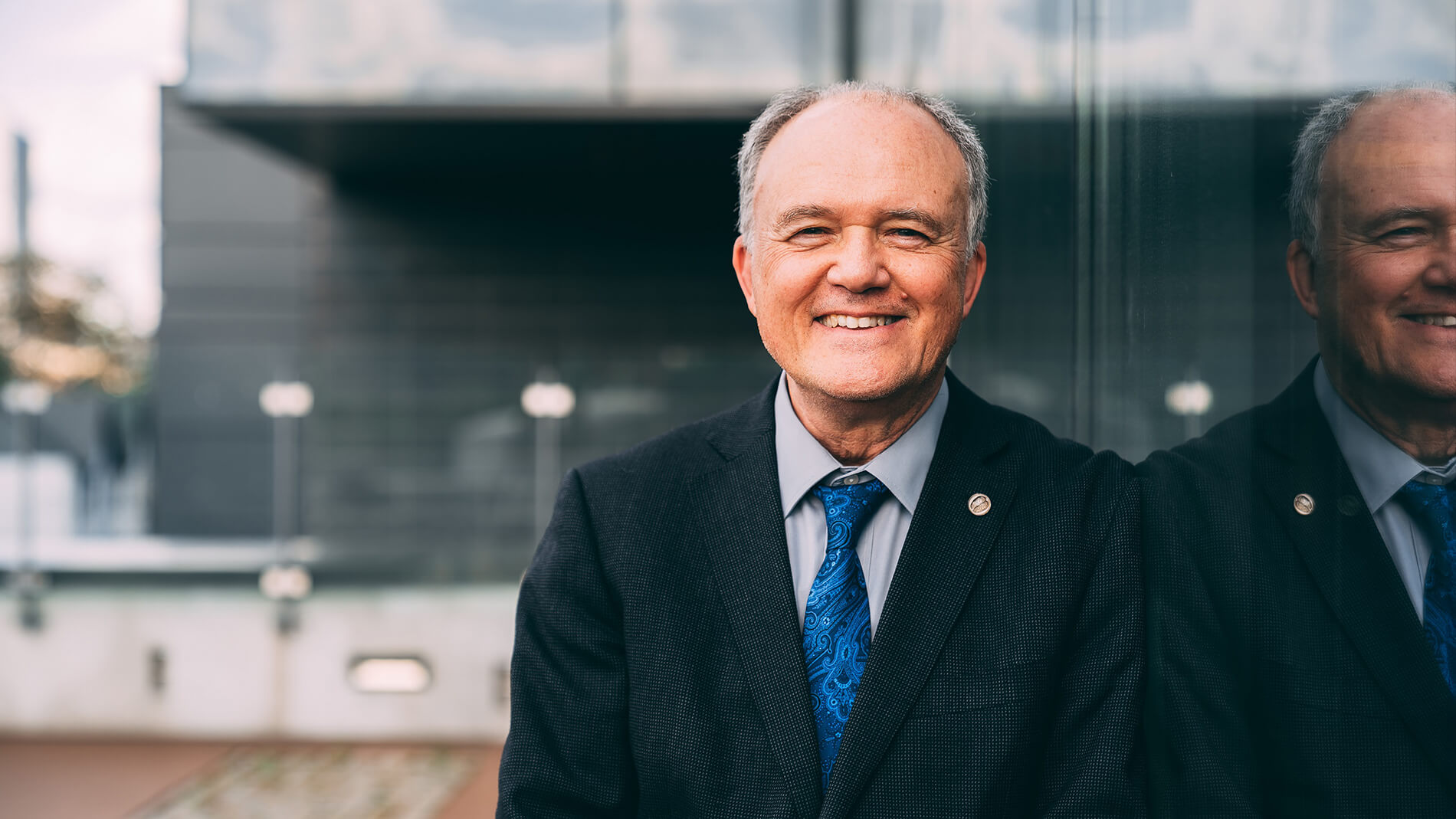From “What-ifs” to Groundbreaking Discoveries: Celebrating Pioneering Researcher Donald Weaver
Written By: BrightFocus Editorial Staff
Written By: BrightFocus Editorial Staff

In recognition of his critical discoveries in Alzheimer’s disease research, BrightFocus scientific alumnus Donald Weaver, MD, PhD, a clinical neurologist at the University of Toronto, has been awarded a prestigious silver-level Oskar Fischer Prize for introducing the unconventional hypothesis that Alzheimer’s disease (AD) is an autoimmune disorder.
The prize is the world’s largest of its kind—10 are annually given to researchers across the globe totaling $4 million. Issued by the University of Texas at San Antonio, the Oskar Fischer Prize recognizes innovative ideas in Alzheimer’s research that look beyond prevailing theories.
Fifteen years ago, the field of Alzheimer’s research was largely focused on amyloid beta (Ab) accumulation as the primary driver behind the disease. At the same time, a then much smaller group of researchers were gathering evidence to show that a different protein, “tau,” actually might be in charge.
Into these crosscurrents stepped researcher Dr. Weaver, who specializes in Alzheimer’s disease (AD) and dementia and has a background in organic chemistry and computer-aided drug design. He put forth a novel, unifying idea.
What if the origins of Alzheimer’s lay with “all the above” — the characteristic Ab plaques and neurofibrillary tau tangles that were first identified by Alois Alzheimer’s in 1906, as well as clusters of other proteins, like alpha-synuclein, linked to both Alzheimer’s and Parkinson’s disease? Protein aggregates in the brain that are tied to AD and neurodegeneration have a key factor in common: all of them undergo biochemical changes that cause them to misfold, aggregate, and become toxic to brain cells.
What if a small molecule drug could be developed that binds to misfolded proteins and interrupts their aggregation in the brain? Would that prevent them from killing brain cells?
These “what-ifs” became the basis for Dr. Weaver’s $1 million 2007-09 Centennial grant from the BrightFocus Alzheimer’s Disease Research (ADR) program, awarded to him and his co-principal investigators Ottavio Arancio, PhD, Columbia University, and Edwin De Pauw, PhD, Université de Liège, Belgium. Working across institutions, countries, and continents, the trio developed a drug candidate targeting misfolded proteins in the brain, as well as a drug screening platform used to test thousands of additional drug candidates.

Shortly after receiving the BrightFocus Centennial grant, Dr. Weaver relocated from Dalhousie to become director of the Krembil Brain Institute in Toronto, part of the University Health Network and one of the largest research institutes in Canada focused on new treatments for human neurological diseases, including Alzheimer’s, Parkinson’s, and certain vision and autoimmune diseases. He also formed the Toronto-based Treventis Corporation, a pharmaceutical startup dedicated to treating and preventing protein misfolding diseases, and he and his co-principal investigators continued the Centennial grant work of developing a drug candidate to prevent protein misfolding. Dr. Weaver has since created additional micropharmas, a term he coined to describe small biotech start-up companies, often rooted in academic research, that are efficient, innovative, and product-focused as they bring new drugs into development and clinical testing.
Ultimately, their original drug candidate proved unsuitable for use in humans. However, in 2018, Treventis formed a partnership with the French pharmaceutical company Laboratoires Servier to create and test thousands of variations designed after the original drug, and to screen them for efficacy using a platform he designed with his BrightFocus grant.
“BrightFocus had the wisdom and foresight to understand that this project could lead to a novel treatment for Alzheimer’s. It is a foundation that has the guts to fund a high-risk, innovative idea,” Dr. Weaver said at the time of the merger.
BrightFocus had the wisdom and foresight to understand that this project could lead to a novel treatment for Alzheimer’s. It is a foundation that has the guts to fund a high risk, innovative idea.
Donald Weaver, MD, PhD
By then, 11 years had passed since the start of their Centennial grant from BrightFocus. While in some fields, that may sound like an eternity, it’s an average time length when it comes to researching and developing new drugs.
To date, Dr. Weaver has developed and guided two drugs targeting protein misfolding into late-stage clinical trials. Treventis continues to work on other drugs in its pipeline, including compounds to inhibit both Ab and tau oligomers (a dual action drug), and to inhibit TAR DNA-binding protein (TDP), another misfolding protein that has been linked to Alzheimer’s and other neurodegenerative diseases, including amyotrophic lateral sclerosis (ALS), frontotemporal dementia (FTD), and limbic predominant age-related TDP-43 encephalopathy (LATE).
It remains to be seen whether these other efforts will succeed. “You have to look at failure as [a step] in the ultimate road to success,” Dr. Weaver said in a 2018 interview with the Krembil Brain Institute. “If you’re not failing, you’re not working hard enough.”
In addition to supporting drug development efforts by Dr. Weaver and his collaborators, the BrightFocus Centennial grant helped to catalyze the thinking behind their novel, unifying theory that explains protein misfolding in the brain.
In a new publication, Dr. Weaver and colleagues assert that a misdirected autoimmune reaction triggers the series of events that includes inflammation, protein misfolding and aggregation, and ultimately cell death, and that this autoimmune reaction is an early part of the disease process that lies at the heart of Alzheimer’s and other neurodegenerative diseases and dementia.
“AD is NOT just misprocessed proteins—those proteins become cytotoxic and aggregate due to an innate immunity cascade,” Dr. Weaver and coauthors assert (Meier-Stephenson FS et al, Translational Research & Clinical Interventions, 2022).
Their hypothesis, supported by research spanning more than a decade using various models, holds that Aβ, which has antimicrobial properties, is first produced in response to stimulating events (e.g., microbes, trauma, ischemia, pollution, depression), and that the response triggers a misdirected cytotoxic attack upon “self” neurons, culminating in progressive neurodegeneration.
[Read our Research in Brief summary of this new work.]
Further, this work highlights the intersection between two pathological processes contributing to AD that are often investigated as independent disease mechanisms – immune disruption and protein misprocessing. Characterizing Alzheimer’s as an autoimmune disease, with interdependent immune-protein interactions that exacerbate disease pathogenesis, leads to new ways of thinking about the disease and opens new avenues for study and treatment.
Dr. Weaver is senior author and Drs. Arancio and De Pauw, along with others, are coauthors of the report in which Dr. Weaver acknowledges BrightFocus support as critical to driving this new way of thinking about Alzheimer’s and autoimmunity.
In the future, you can expect to hear more about this hypothesis and the new research it catalyzes for Alzheimer’s and other forms of dementia.
BrightFocus Foundation is a premier global nonprofit funder of research to defeat Alzheimer’s, macular degeneration, and glaucoma. Since its inception more than 50 years ago, BrightFocus and its flagship research programs—Alzheimer’s Disease Research, Macular Degeneration Research, and National Glaucoma Research—has awarded more than $300 million in research grants to scientists around the world, catalyzing thousands of scientific breakthroughs, life-enhancing treatments, and diagnostic tools. We also share the latest research findings, expert information, and resources to empower the millions impacted by these devastating diseases. Learn more at brightfocus.org.
Disclaimer: The information provided here is a public service of BrightFocus Foundation and is not intended to constitute medical advice. Please consult your physician for personalized medical, dietary, and/or exercise advice. Any medications or supplements should only be taken under medical supervision. BrightFocus Foundation does not endorse any medical products or therapies.
Every Donation is a Step Forward in the Fight Against Alzheimer’s
Your donation powers cutting-edge research and helps scientists explore new treatments. Help bring us closer to a cure and provide valuable information to the public.
Donate Today